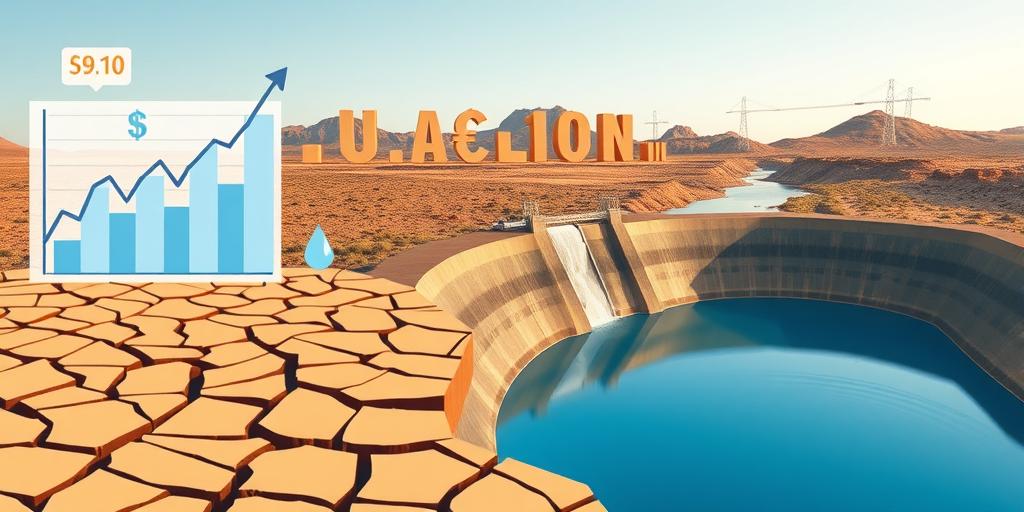Hey friends! Let's talk about something super important, but maybe a little dry: the economics of water scarcity. I know, I know, "economics" and "water scarcity" don't exactly scream "fun Friday night," but stick with me. It's actually fascinating once you dig in.
First off, let's be real – water isn't free. We often take it for granted, right? Turn on the tap, boom, water. But getting that water to your tap involves a whole lot of infrastructure, energy, and treatment. That all costs money. And when water becomes scarce, those costs go way up. Think of it like this: the more rare something is, the more expensive it gets. It's basic supply and demand, you know?
Now, water scarcity isn't just about deserts, okay? Even places with seemingly plenty of water can face shortages. Think drought, overuse, pollution… the list goes on. This can lead to all sorts of economic problems. Farmers might not have enough water to irrigate their crops, leading to higher food prices. Businesses might have to shut down due to lack of water for production. It's a domino effect, really.
Here are a few things I've been thinking about, which are all related to this issue:
- Water markets: Some places are experimenting with water markets, where people can buy and sell water rights. Sounds weird, I know, but it could be a way to allocate water more efficiently. It's definitely a complex issue though.
- Water conservation technologies: Investing in better irrigation systems, water-efficient appliances, and other technologies can help us use less water. But these technologies can be expensive, especially for individuals and small businesses.
- Government policies: Governments play a huge role in managing water resources. They can set water prices, regulate water use, and invest in infrastructure. Getting the policies right is crucial, but it's not always easy.
I know, this is a lot to take in. It's a complex issue with no easy answers. But understanding the economics of water scarcity is key to finding solutions. We can't just keep using water like it's an endless resource. We need to be smarter about how we manage it. Otherwise, we're all in for a rough ride. What do you think?
Have you tried any water conservation methods? Would love to hear your take!









